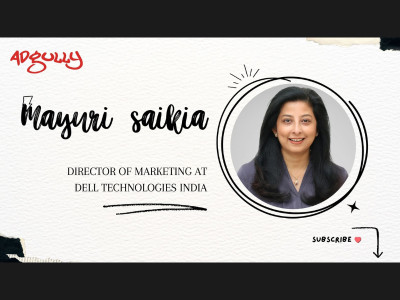How women leaders are driving the growth trajectory of PR industry in India
In an era where diversity and inclusivity are paramount, women leaders are revolutionising the landscape of Public Relations (PR) and Corporate Communication. With their unique strengths and perspectives, they prioritise empathy and understanding, particularly in crisis management when navigating sensitive issues.
Even as most industries are now upping their DEI game, the PR industry has for long been promoting women in leadership roles, in fact, the PR industry has a large percentage of women founders and has a strong gender sensitive strategy.
Tanmana Rath, Lead Communications and Stakeholder Management at TERI, believes that women leaders in PR and corporate communications tend to bring a collaborative and inclusive approach to the boardroom. Their diverse experiences and leadership styles foster relationship-building, leading to more authentic and impactful communication strategies. Moreover, their emphasis on nurturing talent, empathy, and promoting diversity contributes to a dynamic and forward-thinking industry landscape.
On an affirmative note, Jyotsna Dash Nanda, AVP - Corporate Communications, Dharampal Satyapal Group (DS Group), points out that women leaders are reshaping the landscape of PR and corporate communications by bringing a multitude of strengths to the table. These include:
- Diverse Consumer Understanding: Women represent a significant and growing consumer demographic, ensuring campaigns resonate with a wider audience and avoid traditional gender biases in messaging.
- Collaborative Communication: Studies suggest women tend towards a more collaborative communication style, fostering teamwork and inclusivity within communication teams, leading to richer brainstorming sessions and more well-rounded strategies.
“Women have higher emotional intelligence and hence, are able to build a balanced environment for employees. This, in turn, helps to build a cohesive team that can drive better results. It also enables an environment where employees are more confident to share their ideas, in turn driving innovation,” opines Akanksha Jain, Head - Public Relations & Corporate Communications, BharatPe.
She further says, “Women are often skilled at fostering inclusive and participatory decision-making processes, valuing diverse perspectives, and seeking input from all stakeholders. This collaborative mindset can lead to more innovative solutions, stronger team cohesion, and better outcomes for organisations as a whole.”
Jain also notes that women have a different way of looking at things as compared to men. This ensures that they bring a different perspective to a situation or a problem at hand. Additionally, their eye for detail can help add a new dimension when evaluating a problem at hand.
Additionally, Mou Chakravorty, Associate Director Marketing Communications, Deloitte India highlights the importance of market sensing and leveraging digital tools in PR and corporate communication strategies, "We are at the cusp of a massive digital revolution where PR and Corporate communications no longer operate in traditional ways and hence it's important to have market sensing to understand and analyse the consumer behaviour shifts on the go, to listen and accordingly devise a brand communications strategy. Being natural multitaskers, women manage work and home seamlessly, Women leaders are able to bring in valuable inputs of careful observation, empathy and reassurance as well as being grounded . Some of the innovative approaches they are bringing include:
Crowdsourcing ideas and immediate planning over digital and the trait of collaboration
Marrying the power of digital and influencer outreach
Ensuring diversity of opinion and perspectives are welcomed to think beyond the obvious and turning ordinary into extraordinary."
Addressing the role of empathy and understanding in crisis management, Tanmana Rath emphasises, “As a professional, I believe in active listening, acknowledging concerns, and showing genuine care for those affected. Compassion and a commitment to resolving issues establish trust, strengthen relationships, aligning with our values of empathy and understanding. Women leaders like Mary Barra, Chair and CEO of the General Motors Company, or Jacinda Arden, former Prime Minister of New Zealand, are inspiring examples who have turned around situations with their remarkable leadership.”
Jain emphasises that when dealing with sensitive issues or stakeholders, it is important to keep a cool head and hear out the issue, before responding or reacting. “The response should be well-measured and factual in nature. Empathy is important and as a leader, one should be mindful of the trust that an employee has on him/ her to solve an issue. It is recommended to bring the issue to its logical conclusion and extend all possible support (sometimes only listening and guiding helps) to the concerned employee,” she adds.
Jyotsna Dash Nanda stresses that diversity and inclusion are strategic imperatives, adding “Women leaders often excel at building strong relationships with stakeholders, fostering trust and understanding. This is crucial in crisis management and reputation management.”
According to her, in crisis management, empathy is paramount. Here’s how to prioritise it:
- Active Listening: Acknowledge stakeholders' concerns, emotions, and validate their perspectives.
- Transparency and Authenticity: Communicate transparently, taking ownership of mistakes, and outlining a clear path forward.
- Humanise the Response: Showcase the company's commitment to resolving the situation with genuine care.
- Enhanced Creativity: Diverse teams bring a wider range of perspectives, leading to more creative and impactful communication strategies.
- Brand Authenticity: A commitment to diversity enhances brand authenticity and resonates with a broader audience.
- Improved Talent Acquisition: Diverse workplaces attract top talent from all backgrounds, leading to a more competitive and innovative workforce.
TERI’s Tanmana Rath adds here, “We prioritise inclusivity and diversity by ensuring our messaging reflects varied perspectives and engage with a range of stakeholders. We have enhanced our brand reputation, increased engagement, and built stronger relationships with stakeholders, ultimately leading to business gains through improved trust, innovation, and market relevance.”
As far as mentoring and nurturing the next generation of leaders in PR and corporate communications is concerned, Akanksha Jain says that she prefers to advise and guide numerous young professionals on how to further advance in their career. “I guide them from time-to-time on dealing with daily issues, skills that they need to add to their kitty, and on people management. I have always advised all young professionals to invest a lot of time in reading about their industry and be well-aware of the latest developments. This adds to the confidence levels and helps position them as well in front of their senior leaders. Also, I advise next generation of leaders to have the confidence to speak their mind in a meeting and not get bogged down by what others have to say.”
Regarding mentoring the next generation, Tanmana Rath says, “I believe in mentoring the next generation by sharing experiences and nurturing their strengths. Leading with empathy, providing opportunities for growth, giving a platform to learn, and offering constructive feedback. By fostering confidence and emphasizing continuous learning, I strive to empower the younger generation of communicators to excel in their careers and make meaningful contributions to the industry.”
Data from Forbes highlights the correlation between diversity and financial performance, stating that companies with diverse leadership teams have a 19.1% higher chance of exceeding industry-level profitability.
By embracing these fresh perspectives and innovative approaches, women leaders are driving a new era of effective and impactful PR and corporate communication.
Lastly, Mou from Deloitte emphasizes eradicating biases, creating safe spaces for women to voice concerns, "The first step is to eradicate biases seeped in our mindset and through networking within and outside the organisation, we have tried to create a safe space for women to be vulnerable and open up on various discriminatory behaviours under our SheXO initiative..
Based on these things, women have been able to share their issues without inhibitions and we guide them on physical, mental and professional wellness."
"Secondly, we have policy checks that ensure that any team has a healthy gender ratio and there are no gender discriminations. Steps like flexibility and return to workforce or special care during motherhood have helped encourage more and more wormen.
to join the workforce in the digital age not only as full time employees but as gig-employees where there is a healthy balance of work and life.
Formal mentoring, coaching programmes also help women professionals to step up in their career journeys especially when they self doubt", she added.


















Share
Facebook
YouTube
Tweet
Twitter
LinkedIn